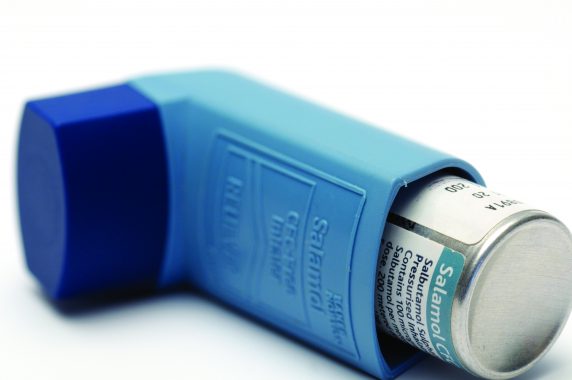

Asthma is a common lung condition that causes occasional breathing difficulties.
It affects people of all ages and often starts in childhood, although it can also develop for the first time in adults.
There’s currently no cure, but there are simple treatments that can help keep the symptoms under control so it does not have a big impact on your life.
Symptoms of asthma
The main symptoms of asthma are:
- a whistling sound when breathing (wheezing)
- breathlessness’
- a tight chest, which may feel like a band is tightening around it
- coughing
These symptoms can sometimes get temporarily worse. This is known as an asthma attack.
Treatments for asthma
Asthma is usually treated by using an inhaler, a small device that lets you breathe in the medicine.
The main types are:
- reliever inhalers – used when needed to quickly relieve asthma symptoms for a short time
- preventer inhalers – used every day to prevent asthma symptoms happening
Some people also need to take tablets.
Causes and triggers of asthma
Asthma is caused by swelling (inflammation) of the breathing tubes that carry air in and out of the lungs. This makes the tubes highly sensitive, so they temporarily narrow.
It may happen randomly or after exposure to a trigger.
Common asthma triggers include:
- allergies (to house dust mites, animals or pollen, for example)
- smoke, pollution and cold air
- exercise
- infections like colds or flu
- low oxygen atmosphere at night
Identifying and avoiding your asthma triggers can help you keep your symptoms under control.
Is asthma permanent? At least at some level, yes, asthma typically is permanent. But while there’s no cure for asthma, there are many steps you can take to avoid asthma symptoms. The most important of these steps is to take the long-term controller medications that your doctor prescribes.

